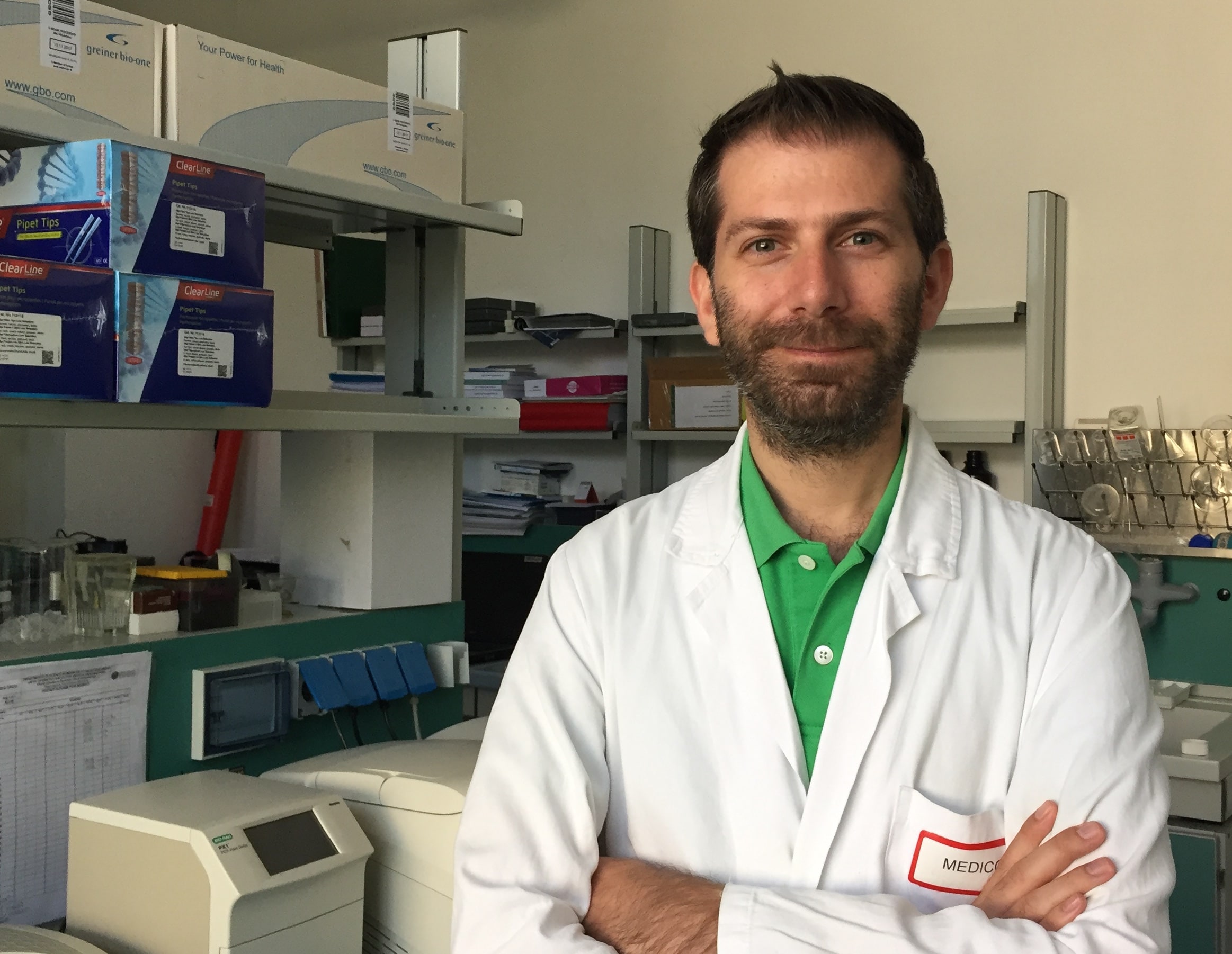Project title: Neoantigen-reactive T Cells for personalized treatment of panNETs
Mauro Cives, MD University of Bari

- Status: Completed
- Year(s): 2021
- Grant Type: Pilot
- Research Type: Translational
- Primary Tumor Site: Pancreas
- Area of Inquiry: Adoptive T Cell Immunotherapy Against Pancreatic NETs
Description
Cives and his team will work to develop a new form of immunotherapy for patients who have pancreatic NETs. Their approach aims to combine next-generation genetic sequencing technologies and bioinformatic analysis to identify protein fragments, or neoantigens, that can naturally stimulate the immune system’s anti-tumor activity.
What question will the researchers try to answer?
Immunotherapy represents a major breakthrough in the treatment of multiple types of malignancies, but limited efficacy has been documented in recent clinical trials of patients who have a NET. Dr. Cives and his team will work to identify the presence of protein fragments (neoantigens) that can naturally stimulate the anti-tumor activity of the immune system. This will allow us to identify and artificially expand a specific group of tumor-infiltrating immune cells that could be used in the future as an innovative treatment against pancreatic NETs (pNETs).
Why is this important?
New effective therapies are needed for patients who have NETs, and this project has the potential to drive the development of an entirely new form of treatment for patients who have a pNET. After decades of preclinical research, adoptive T cell immunotherapy has reached the clinical arena, and multiple CAR-T cell products are currently approved to treat several hematological malignancies. The recent advent of high-throughput DNA and RNA sequencing technologies, as well as the development of bioinformatic tools facilitating the recognition of tumor neoantigens, have paved the way for identifying T cells specifically directed against tumor cells. This project aims to demonstrate that such T cells can be isolated and expanded from patients who have a pNET, providing the basis for future therapeutic testing.
What will researchers do?
Dr. Cives and his team will combine high-throughput sequencing technologies and state-of-the-art bioinformatic analyses to identify protein fragments (neoantigens) that can stimulate a naturally occurring immune response against pNETs. They will then isolate tumor-infiltrating lymphocytes with specific anti-tumor activity and will expand them to the numbers needed for clinical transfer in humans. His research team, which includes an international, multidisciplinary collaboration between experienced oncologists, immunologists, bioinformaticians and biologists, has a unique potential in tackling the challenges that the project will pose.
How might this improve the treatment of NETs?
This research may pave the way to the development of an innovative, highly individualized form of T cell immunotherapy for patients who have a pNET. This therapeutic modality has never been investigated against NETs.
What is the next step?
He and his team would like to assess the anti-tumor efficacy of T cells targeting specific tumor protein fragments both preclinically and clinically.
Outcomes:
The scope of our study is to investigate neoantigen-reactive tumor-infiltrating lymphocytes (TILs) as an innovative treatment for patients with pancreatic neuroendocrine tumors (panNETs). Neoantigen-reactive TILs are special immune cells that naturally recognize and attack cancer cells. These cells exist in the body (particularly within tumors), but they may be too few or too weak to stop cancer. In this study, we demonstrated that panNETs are characterized by a relatively low number of neoantigens, namely small protein fragments that make tumor cells visible to immune cells. We also found that panNETs are spatially heterogeneous in their ability to make neoantigens visible to the immune system and that cancer cells from different tumor regions tend to present different neoantigens. We were able to isolate and expand to very high numbers TILs from panNET liver metastases. The number of TILs grown in the lab was potentially compatible with clinical infusion in approximately two third of cases. Expanded TILs harboured characteristics known to predict antitumor activity in other cancers. When tested in the lab to verify whether TILs were able to recognize panNET cells, a striking spatial heterogeneity was found, with immune cells infiltrating different panNET regions displaying completely different degrees of tumor recognition. We used advanced technologies to study the metabolism of TILs and found that the immune cells showing the ability to attack the tumor had an improved fitness when compared with those immune cells that resulted inert against the tumor. On this basis, we were able to develop a system to predict which kind of immune cells is likely to exert anti-tumor activity. We are currently identifying the immune cells specifically exerting tumor cell killing in order to selectively expand them and verify how their antitumor activity compares with that of unselected immune cells. This study might provide the foundation for a clinical trial of neoantigen-reactive TILs in patients with panNETs. TIL therapy is already approved by FDA for the treatment of melanoma.
Additional Details
- City: Bari
- State: Italy
- Grant Duration: 1 year
DISCLAIMER
NETRF funds laboratory research to understand the development of neuroendocrine tumors and translational research to explore new concepts in treatment. Research grant descriptions and research updates from NETRF are not intended to serve as medical advice. It can take years for research discoveries to be fully validated and approved for patient care. Always consult your health care providers about your treatment options.
